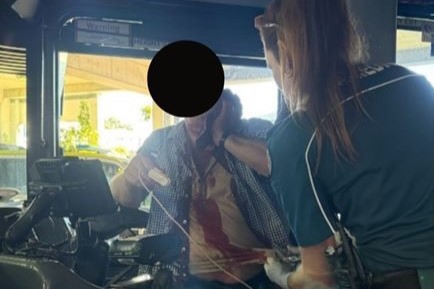Manners and civility are not instinctive. Socially acceptable behaviour must be incrementally learnt, preferably from when you start out in life.
At our most basic, we are animals, scrapping and battling to get what we need for survival. For social cohesion, community strength and safety, we need to also quickly learn when to pick fights and when to make room, who is in charge and who can be ignored.
And now the balance has tipped: too many have missed the manners, respect and kindness lessons and the violence is rife, misdirected – and escalating.
Take the police, for example. The Queensland Police Service this month handed down its 100-day review into its workforce. Among the challenges, the report found police were attending 180,000 domestic and family violence calls every year: more than 570 calls a day.
The number is so huge it is hard to comprehend – and they are just the violent incidents where the police were called. Heaven knows how many more “weren’t bad enough” for cop involvement.
Police were also called to 60,000 incidents where there was safety concerns linked to a person’s mental health and they were found to be working in environments that are abusive, violent and deadly.

But they are not the only ones. Others who protect and help us are also being hurt. A Queensland Health report last year found 51 employees a day were being physically and verbally assaulted. Shocking.
A bus driver was stabbed at Caloundra this month and last financial year on Sunshine Coast buses, Kinetic reported there were seven physical assaults on drivers, 18 instances of verbal abuse and three reports of objects thrown at the bus.
Do you have an opinion to share? Submit a Letter to the Editor at Sunshine Coast News via news@sunshinecoastnews.com.au. You must include your name and suburb.
I was at the post office this week when a man menaced a worker and then yelled the place down, all because the staff member would not hand over a certified item that was not addressed to him.
This is an emergency. Violence and aggression have become an expected response to anything adverse, watched over by faded signage on the wall begging for courtesy. Teaching the pack to eschew the aggro when things don’t go well is a matter for all of us.
And it will be a long way back.
Dr Jane Stephens is a UniSC journalism lecturer, media commentator and writer.





